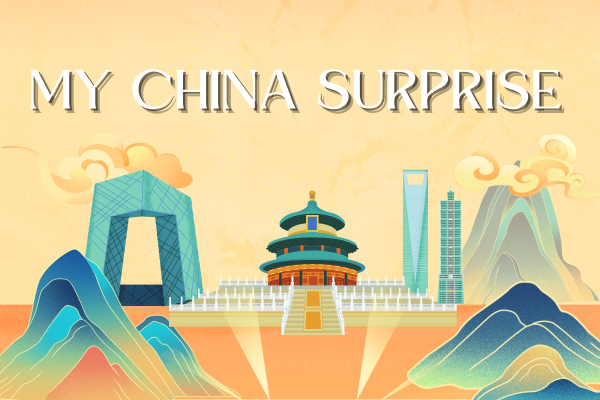In 1987, I graduated in Medicine and Surgery at the State University of Milan, Italy, dreaming to become one day a cardiac surgeon. A few days after the graduation ceremony, I saw the epic biographical drama film “The Last Emperor”, directed by Bernardo Bertolucci, about the life of Puyi, the last Emperor of China, ignoring that nearly 30 years later I would visit the Museum of the Imperial Palace of Manchukuo in Changchun, that was the actual setting in Bernardo Bertolucci's 1987 biographical film of Puyi.
Back then I never considered that I would eventually think of Changchun as somewhere I’d visit, never mind my second home.
As I began the pursuit of my dream of becoming a cardiac surgeon, I knew that I had a very long and difficult journey ahead. The next 30 years were difficult but intense, as I gave everything every day, in my commitment towards professional excellence, putting the rest of my life into the background.
As can often happen, after years of constant dedication towards a cause, as this goal was finally achieved, you understand this feeling of fulfillment, as you feel that there’s something else beyond that purpose, something that you cannot clearly understand, but that you miss intensely.
This is how I felt back in 2013 when a street cycling accident suddenly and dramatically changed my whole life. After five hours of surgery and a six-month rehabilitation program following the accident, I was faced with this great unknown for 90 days as to whether I’d get complete functional recovery of my immobilised right hand, which had a decomposed fracture of the fourth metacarpus.
I knew and I was very worried, that as a right-handed cardiac surgeon this horrific injury could mean the end of my professional career. Luckily, at the beginning of 2014, I was nearly fully recovered and back on track looking for a new challenge in my life and as popular wisdom says, he who seeks, shall find.
I received a phone call from a cardiologist friend of mine who told me he was leaving for China, he would work for one year in a city named Changchun in the far north-east of the country. I thought to myself, why not follow him?
At the beginning of November 2015, I was like an excited child flying from Milan to Changchun, with a stopover in Shanghai. The purpose of the trip was to visit both my colleague’s hospital, named Jilin Heart Hospital, and have a look around the city of Changchun, and possibly sign a collaboration contract.
At that time my knowledge of China was very poor, and of Changchun even less, so I surfed the internet to desperately find out all I could. I rediscovered the story of Bernardo Bertolucci and his movie, the historical details about Puyi and the Japanese invasion.
I also found out that Changchun means “long spring”, and that the city could be considered both the “Detroit” and “Hollywood” of China. That’s because it’s well known for both the automotive and film industries and it’s also recognized as being the “the garden city” for its extensive parks and gardens that characterise it.
My first stay in Changchun lasted just two weeks and during the return flight back to Italy, I thought back through the whole experience. I was feeling very nervous as I would soon be having to make an important life changing decision, should I accept the position that had been offered to me by the Jilin Heart Hospital, as director of the Cardiac Surgery Department.
I felt empowered when the hospital board was telling me about the “Jixin Program”, directed towards guaranteeing the highest quality cardiac surgery treatment for poor people. I soon fell asleep and when I woke up a few hours later, in the dark of the aircraft cabin, the decision was made. I would be accepting the job and becoming a citizen of Changchun.
The following six years have been characterised by a progressive and constant process of falling in love with Changchun. At present the thing I appreciate most is the constantly fresh and clean air. It is a real pleasure for the senses walking to the hospital in the morning, looking at the perfectly groomed flower beds and the long rows of green trees, that characterise the city during the “long spring”.

It is also a pleasure in wintertime when the temperature goes down far beyond minus 20 degrees Celsius, walking in the dark of the early morning you hear the dull noise of your steps on the compact snow and you feel and see the steam of your breath as your eyelashes quickly freeze.
What I love most about the city of Changchun are its inhabitants, or to put it better its “patients", those I meet every day while working at Jilin Heart Hospital. I enjoy knowing that as they are treated at the hospital that their future will improve, given all the difficulties they historically went through in their hard life as a farmer that the vast majority of them lead.

I perceive them as a strong and very proud people and it’s very interesting to see them ready to face all the modern rapid changes that Chinese society is going through, however still mindful and aware of their history and traditions.
They have a calm acceptance of their suffering, with their bodies marked by working endlessly in the fields, they have taught me a lot and are still teaching me more every day, making me understand that in caring for their sufferings, my technical skill and scientific knowledge are of paramount importance but that must be accompanied by a deep sense of human understanding for others. Only in this way is it possible to provide a unique service to these patients and to build and enduring edifice of character within myself.
Thank you Changchun for everything, as you’ll always hold a very special place in my heart and have become my second hometown.






